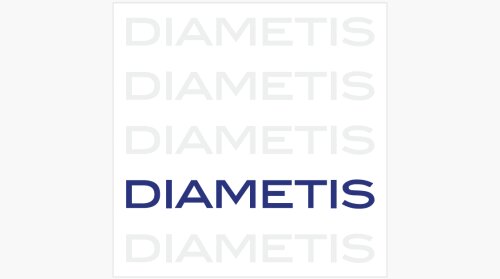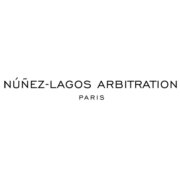Best Outsourcing Lawyers in France
Share your needs with us, get contacted by law firms.
Free. Takes 2 min.
Or refine your search by selecting a city:
List of the best lawyers in France
About Outsourcing Law in France
Outsourcing in France refers to the practice of a company hiring an external service provider to perform business functions that were traditionally done in-house. This can include services such as IT infrastructure management, customer support, or manufacturing. The legal framework surrounding outsourcing in France is complex and requires a thorough understanding of labor laws, contract laws, and data protection regulations.
Why You May Need a Lawyer
You may need a lawyer when engaging in outsourcing in France to ensure that your contracts are legally binding and protect your rights as a business. A lawyer can help you navigate the complex legal landscape, negotiate contracts with service providers, and resolve disputes that may arise during the outsourcing process.
Local Laws Overview
Key aspects of local laws relevant to outsourcing in France include labor laws, data protection regulations, and contract laws. French labor laws provide strong protections for employees, which can impact outsourcing agreements. Data protection regulations, such as the General Data Protection Regulation (GDPR), apply to the transfer of personal data outside the European Union. Contract laws in France require clear and enforceable agreements between companies and service providers.
Frequently Asked Questions
1. What are the key considerations when outsourcing in France?
Key considerations when outsourcing in France include compliance with labor laws, data protection regulations, and contract laws. It is important to have clear agreements in place with service providers and to ensure that they comply with French regulations.
2. How can I ensure that my outsourcing contracts are legally binding?
To ensure that your outsourcing contracts are legally binding, it is recommended to work with a lawyer who has experience in outsourcing law in France. They can review contracts, negotiate terms, and ensure that all legal requirements are met.
3. What are the risks of outsourcing in France?
Risks of outsourcing in France can include legal disputes with service providers, data breaches, and non-compliance with labor laws. It is important to carefully review contracts and work with legal counsel to mitigate these risks.
4. How can I protect my intellectual property when outsourcing in France?
To protect your intellectual property when outsourcing in France, it is important to include specific clauses in your contracts that address confidentiality, ownership of intellectual property, and non-disclosure agreements. Working with a lawyer can help ensure that your intellectual property is protected.
5. What are the advantages of outsourcing in France?
Advantages of outsourcing in France can include cost savings, access to specialized skills, and increased flexibility for your business. By outsourcing non-core functions, companies can focus on their core competencies and drive business growth.
6. How can I terminate an outsourcing contract in France?
Terminating an outsourcing contract in France can be complex and may require a notice period, payment of contractual fees, and resolution of any disputes. It is recommended to work with a lawyer to ensure that the termination is done legally and smoothly.
7. What are the differences between outsourcing and subcontracting in France?
In France, outsourcing typically involves a longer-term relationship where a company transfers a business function to a service provider. Subcontracting, on the other hand, is a temporary arrangement where a company hires a third party to perform specific tasks within a project. The legal requirements and obligations can vary between outsourcing and subcontracting.
8. How can I ensure compliance with data protection laws when outsourcing in France?
To ensure compliance with data protection laws when outsourcing in France, it is important to include data protection clauses in your contracts, conduct due diligence on service providers, and monitor their data handling practices. Working with a lawyer can help ensure that your data is protected.
9. Can I outsource to service providers outside of France?
Yes, you can outsource to service providers outside of France, but it is important to consider the implications of international outsourcing, such as data transfer regulations and compliance with local laws in the service provider's country. Working with legal counsel can help navigate these complexities.
10. How can I resolve disputes with my outsourcing service provider in France?
To resolve disputes with your outsourcing service provider in France, it is recommended to first attempt to resolve the issue through negotiation and mediation. If a resolution cannot be reached, legal action may be necessary. Working with a lawyer experienced in outsourcing disputes can help protect your interests.
Additional Resources
For additional resources on outsourcing in France, you can consult the French Ministry of Economy, Finance, and Industry, the French Data Protection Authority (CNIL), and the French Labor Code. These resources can provide valuable information on legal requirements and best practices for outsourcing in France.
Next Steps
If you require legal assistance in outsourcing in France, it is recommended to contact a lawyer with experience in outsourcing law. They can provide guidance on drafting contracts, negotiating terms, and resolving disputes that may arise during the outsourcing process. Remember to conduct thorough research and due diligence before entering into any outsourcing agreements to protect your business and ensure compliance with local laws.
Lawzana helps you find the best lawyers and law firms in France through a curated and pre-screened list of qualified legal professionals. Our platform offers rankings and detailed profiles of attorneys and law firms, allowing you to compare based on practice areas, including Outsourcing, experience, and client feedback.
Each profile includes a description of the firm's areas of practice, client reviews, team members and partners, year of establishment, spoken languages, office locations, contact information, social media presence, and any published articles or resources. Most firms on our platform speak English and are experienced in both local and international legal matters.
Get a quote from top-rated law firms in France — quickly, securely, and without unnecessary hassle.
Disclaimer:
The information provided on this page is for general informational purposes only and does not constitute legal advice. While we strive to ensure the accuracy and relevance of the content, legal information may change over time, and interpretations of the law can vary. You should always consult with a qualified legal professional for advice specific to your situation.
We disclaim all liability for actions taken or not taken based on the content of this page. If you believe any information is incorrect or outdated, please contact us, and we will review and update it where appropriate.
Browse outsourcing law firms by city in France
Refine your search by selecting a city.

















